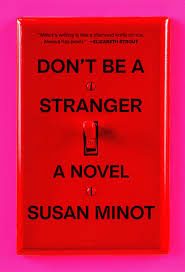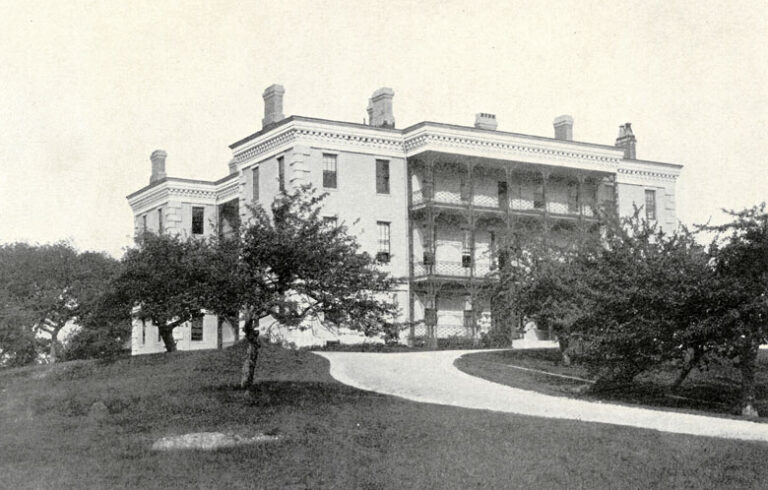Don’t be a Stranger
By Susan Minot (Knopf, 2024)
Susan Minot, author of eight books, including collections of poetry and short stories, has homes in New York City and North Haven. For me, she is most memorable for her first novel, Monkeys.
Don’t be a Stranger, her new novel, does not feature Maine at all; its narrator Ivy lives in New York. Like Minot, she is a writer and a divorced mom. Ivy focuses on the story of involvement with a lover—a musician, Ansel, much younger than she (he in his 20s, while Ivy is in her early 50s with a son in elementary school).
Ansel is sexy and alluring, and he seems to think similarly of her. Physically drawn to each other, they discover their apartments are not far apart, and impulsive trysts can occur.

Ansel is sometimes unavailable for a “booty call,” to Ivy’s distress. She clearly likes the sex they enjoy and becomes reliant on it to feel good about herself and about life.
She obsesses, thinking about the other women she is sure he also sees, and resents his artistic priorities that interfere, like composing and recording his music.
Ivy suffers their apartness. Ivy’s inner thoughts—fears, desires, cravings, and worries—make up most of this book. Their lovemaking seems transformative; it makes her feel alive, wanted, known, complete.
What complicates the story is that their relationship seems fragile and doomed, and not because of age differences or parenting demands. Ivy’s needs are intense.
I felt it was not so much a book about pleasure but about pain. Ivy foregoes the satisfaction she once found in friendships; she had enjoyed being with other creative and interesting people, friends who seemed to really care about her.
She obsesses, thinking about the other women she is sure he also sees, and resents his artistic priorities that interfere, like composing and recording his music.
She worries all the time about the quality of her parenting. After experiencing the early loss of her own parents and her divorce after having a child, Ivy feels guilty for her son’s equivalent loss of a mother-father dyad.
There is therapy in this picture, and other attempts Ivy makes to feel better, showing she’s aware of Ansel’s negative impact. But by the book’s end, we are still left with the possibility she will never really move on.
Last summer, Elizabeth Strout, another Maine/New York writer and astute observer of relationships, visited North Haven for a public conversation with Minot. It was a potent pairing—both writers appreciate emotional challenges in life.
Strout has created characters who can be difficult to like; I’m thinking most of Olive Kitteridge. But Strout also has largely redeemed them in later novels.
What about Ivy? If she had a more mundane existence, would it be a boring book? Is Minot deliberately cooking up something spicy for readers to respond to? Is she proving, through Ivy, that wrestling your “demons”—Ivy’s investment in what seems a hurtful relationship—has its rationale?
Late, and rushing on her bicycle to pick up her son, Ivy’s quick braking on gravel makes her fly over her handlebars. As she assessed her injuries, she reflects:
“She was not looking after herself; it was time to make the break. Again. She didn’t need to tell Ansel Fleming about this.
“It was simply up to her. She felt clear. Looking at her face in the mirror was a good reminder. She deleted all his texts. She regretted it immediately. She’d just wiped away the history of her heart. So what if it was the history of something made up, it had been a parallel universe where she had liked living.”
The constants in Ivy’s life—anxiety, the threat of loss, regret, and blaming herself—benefit from her alternate universe.
Feeling wanted was what she craved, even if a more physical than emotional affirmation. But always, there was the possibility of being left.
I think of the title, Don’t Be a Stranger. The cliché seems to refer to status. We are no longer strangers, so don’t act like one. Stay close, stay in touch.
For Ivy, there wouldn’t be anything more heartfelt she could say. I think Minot has portrayed an elephant in the room: we all look for what will fill our primary needs, the unfulfilled ones brought to adulthood from childhood. All of us want to feel cared about.
Though her palpable anxiety can be exhausting for the reader, Ivy helps us picture life when security feels uncertain.
Tina Cohen is a therapist who spends part of the year on Vinalhaven.





